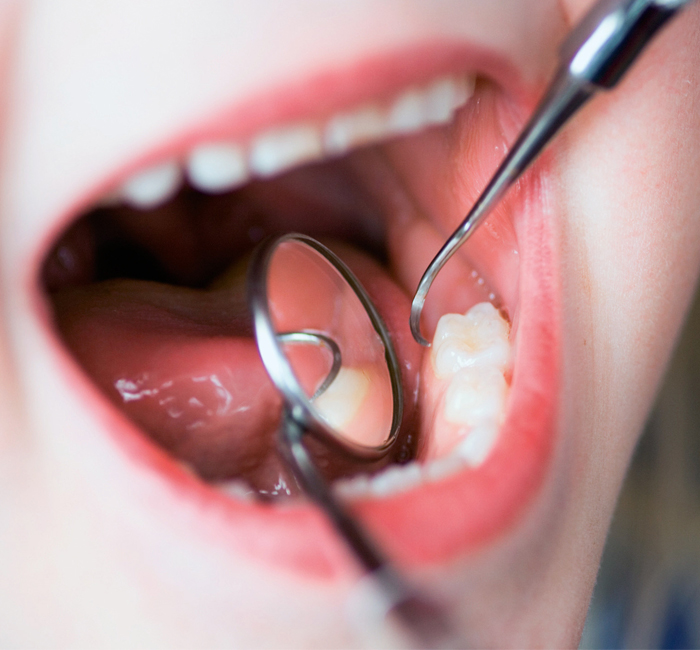Oral Cancer
What Is Oral Cancer?
Risk Factors
Men, particularly men over the age of 50, are at the greatest risk of being diagnosed with oral cancer. Smoking, excessive drinking, smokeless tobacco use, a family history of cancer, too much sun exposure, and the HPV virus put people at a higher risk of oral cancer.

Signs and Symptoms of Oral Cancer
- Lumps, bumps, persistent sores, or swollen areas in the mouth, or on the tongue, cheeks, or lips that have not gone away after two or more weeks
- White and red textured patches in the mouth
- Unexplained bleeding, numbness, or pain and tingling in the mouth, face, teeth, or neck
- Persistent, sore, swollen feeling at the back of your throat
- Difficulty speaking, swallowing, using the tongue, moving the jaw, or chewing
- Scratchy voice or a sore throat
- Ear pain or pain and tenderness in the face, neck, mouth, or jaw
- Unexplained and sudden, extreme weight loss
Diagnosis and Treatment
If anything is detected, your dentist will take a tissue sample to send off to the lab for a biopsy. Biopsies help to determine the exact makeup of the abnormality, thus helping to determine the proper course of treatment needed. Treatment typically follows a standard protocol of surgery to remove the cancer, and then radiation and/or chemotherapy to kill off any lingering cancer cells.
Get a jump start on your oral heath by scheduling a dental examination with the caring and experienced dentists and staff at Divine Dental Care today.
